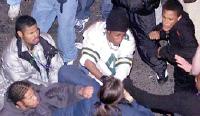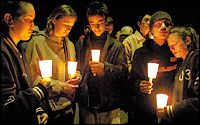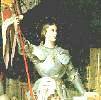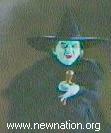Seattle
Riots: Was race spark that ignited so much rage?
(By Florangela Davila - Seattle Times staff reporter)
Punches were thrown in Pioneer Square - and buttons were pushed throughout
the city.
The explosive trigger: race.
On Feb. 27, a crowd of 4,000 converged - some spilling out of bars,
some bringing their own drinks to party in the street - to celebrate
the end of Mardi Gras. As Fat Tuesday wore on, drinking and displays
of nudity erupted into bursts of savagery.
By the time the streets were cleared, one man was fatally injured,
71 people were injured, and property damage was estimated at $80,000.
Citizens were outraged - at the bars who sponsored the event, at
the police who stood by while beatings went unchecked, at the youths
who got caught up in brutal mob behavior.
And that's roughly where agreement ends about what happened in Pioneer
Square that night - and why.
While police, city officials and community leaders try to discover
the spark that ignited so much rage, many of those who watched the
events from afar - on television or through newspaper accounts - quickly
made up their minds.
Fat Tuesday, they concluded, was black-on-white violence.
"I saw young black males hitting innocent bystanders,"
said Andrew Lehtinen, 24, a welder from Seattle. He was in New Orleans
for Mardi Gras this year. He followed news of the Seattle street brawls
on CNN and newspaper Web sites.
"I didn't see any whites beating up blacks - or women, for that
matter," he said. Lehtinen is white.
"I saw the stuff on TV and it was alarming - this sort of gratuitous
violence," said Henry McGee, Jr., 69, a Seattle University law
professor.
"There were clearly blacks assaulting whites. I didn't see any
pictures of blacks assaulting blacks," McGee continued. "It's
hard to say whether their motivations had to do with race. I think
the least one can say is that unless the blacks were acting in self-defense
-- and that doesn't come off in the tapes - my guess is there may
well have been a racial dimension to it.
"In any case, it will be perceived as racial." McGee is
black.
On radio talk shows, in chat rooms and in calls, e-mails and letters
to newspapers, the public outcry about Mardi Gras has been tinged
with race, and with accusations that the police and media have ducked
a volatile truth.
"The instigators of these violent acts were black gang-bangers
out to hurt white people," spouted an e-mail from a man calling
himself Wild Bill. "Surely had a gang of white guys beaten up
on a bunch of blacks and killed one ... the coverage would have been
focused on race."
Police and city officials have insisted they can't identify a racial
motive to the Fat Tuesday brawls. Nor have police arrested suspects
in the beating death of Kristopher Kime, 20, of Auburn, who was beaten
to death as he tried to help a woman who had been knocked to the pavement.
Kime was white.
But police have said there was a roving group of young black men
and women who attacked many white partygoers in the crowd. And witnesses
said the man who hit Kime from behind was black.
Public rumblings have accused the police and media of political correctness
- the former when it failed to wade into the crowd, the latter when
it failed to wade into the race issue - for fear of offending the
black community.
"Whenever someone white attacks someone black, it's immediately
a racial issue," said Lael Prock, 60, of Mercer Island.
Look how quickly the black community, he said, claimed racial bias behind
last April's police shooting of David John Walker, a mentally ill African
American, after he shoplifted from a Queen Anne grocery. (more...





 Jerell
Thomas was sentenced Friday to 15 years in prison for his violent
rampage that killed 20-year-old Kristopher
Kime at last year's Mardi Gras celebration. King County Superior
Court Judge Anthony Wartnik said Thomas, now 18, has "a
great deal of good within him" but has trouble controlling his anger."Certainly
Jerell Thomas' acts appear to be monstrous
in nature," Wartnik said. "But that doesn't appear
to indicate that he is a monster in his psychological makeup."
Jerell
Thomas was sentenced Friday to 15 years in prison for his violent
rampage that killed 20-year-old Kristopher
Kime at last year's Mardi Gras celebration. King County Superior
Court Judge Anthony Wartnik said Thomas, now 18, has "a
great deal of good within him" but has trouble controlling his anger."Certainly
Jerell Thomas' acts appear to be monstrous
in nature," Wartnik said. "But that doesn't appear
to indicate that he is a monster in his psychological makeup."
 SEATTLE - A man photographed wearing brass knuckles during the
downtown Mardi Gras riots was sentenced Friday to three years in prison.
Aaron Slaughter, 19, pleaded guilty in September to second-degree
assault with a deadly weapon, two counts of fourth-degree assault and
one count of felony rioting. King County prosecutors said Slaughter roamed
through Pioneer Square and attacked people at random as Mardi Gras celebrations
last February disintegrated into a riot. More than 70 people were hurt
in the violence. One young man was killed. -
(reader link)
SEATTLE - A man photographed wearing brass knuckles during the
downtown Mardi Gras riots was sentenced Friday to three years in prison.
Aaron Slaughter, 19, pleaded guilty in September to second-degree
assault with a deadly weapon, two counts of fourth-degree assault and
one count of felony rioting. King County prosecutors said Slaughter roamed
through Pioneer Square and attacked people at random as Mardi Gras celebrations
last February disintegrated into a riot. More than 70 people were hurt
in the violence. One young man was killed. -
(reader link)
 A jury Wednesday convicted Jerell Thomas of second-degree
murder in the death of Kristopher Kime
during a rowdy Mardi Gras celebration in Seattle in February. Thomas used
his hands to show "the anger and rage that seethed within him,"
Deputy Prosecutor Andrea Vitalich told jurors Tuesday. He bashed two
men with a skateboard, then punched Kime "over and over again, until
he had literally driven his head into the pavement." NNN-Seattle-riots
- (VNN link)
A jury Wednesday convicted Jerell Thomas of second-degree
murder in the death of Kristopher Kime
during a rowdy Mardi Gras celebration in Seattle in February. Thomas used
his hands to show "the anger and rage that seethed within him,"
Deputy Prosecutor Andrea Vitalich told jurors Tuesday. He bashed two
men with a skateboard, then punched Kime "over and over again, until
he had literally driven his head into the pavement." NNN-Seattle-riots
- (VNN link) 
 Black
Tuesday: Seattle's Mardi Gras celebrations
Black
Tuesday: Seattle's Mardi Gras celebrations 